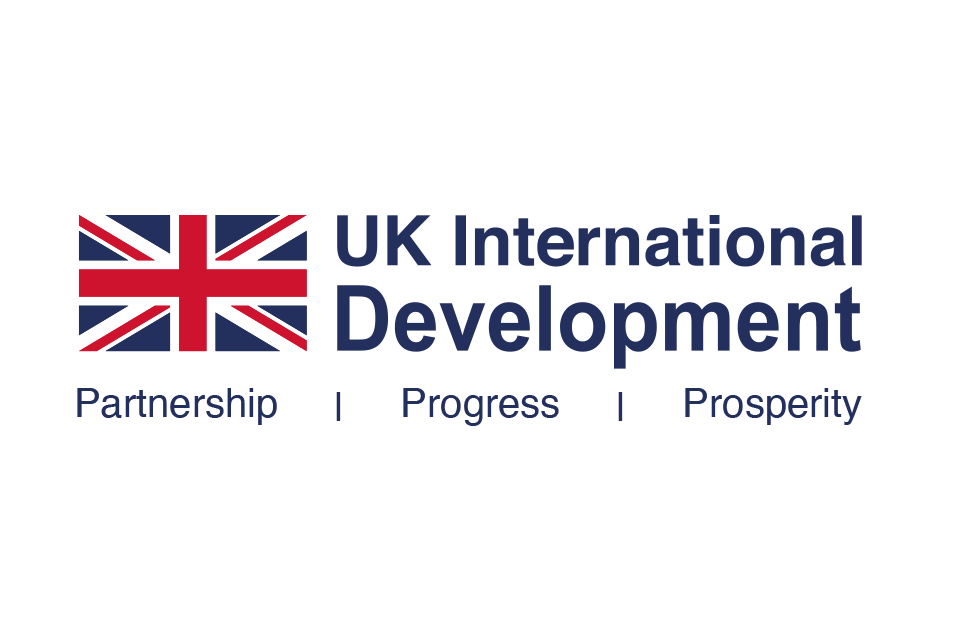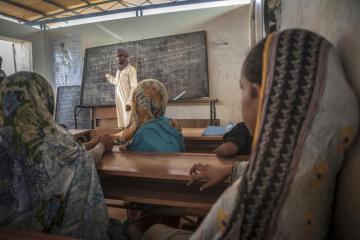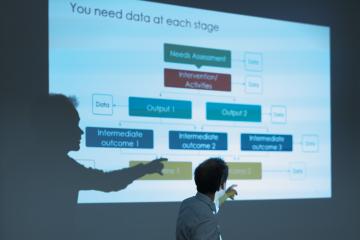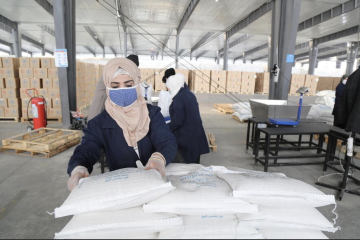Generating Rigorous Evidence on the Effectiveness of Humanitarian Programming
Conflict and crisis situations threaten the lives and basic rights of individuals, and present obstacles to both the fulfilment of basic needs and inclusive economic development. UN OCHA estimated that 274 million people will require humanitarian assistance in 2022 and the scale of these needs continue to grow, in particular as global warming leads to further disasters, displacement and potential conflict. Yet, rigorous evidence on how humanitarian assistance can be delivered effectively, and in a manner that can durably meet the needs and protect the rights of affected populations, is scarce. To help fill this evidence gap, J-PAL is developing a long-term research effort with the intention to identify effective models of humanitarian programming and improve protection outcomes.
Scope
We will consider a range of related sectors and thematic areas relevant to humanitarian programming in our efforts to promote impact evaluations that can inform effective programming in this area.
Based on consultations with affiliated researchers and practitioners, we anticipate that particularly relevant research may contribute to the following areas of knowledge:
Protection
How to better protect the rights and dignity of conflict and disaster-affected populations? This workstream will for example focus on identifying effective models for:
- Formalising legal rights and increasing rights uptake;
- Influencing the behaviour of actors and institutions responsible for rights violations to prevent, reduce, and respond to violence
- Providing psychosocial support and medical assistance in response to violence and abuse.
Effectiveness
How to improve the effectiveness of delivery mechanisms and maximise the impact of humanitarian interventions? This workstream will focus on assessing the relative effectiveness of different aid delivery modalities—familiar examples include cash vs in-kind transfers—or identifying ways to facilitate access to and take-up of basic services, such as housing or physical and mental health support.
Sustainability
Humanitarian assistance is increasingly embedded in, and expected to serve, a longer-term development logic. This workstream will seek to identify solutions that foster resilience of populations to shocks and reduce aid dependency, as well as help design humanitarian programmes with an eye to improving long-term socioeconomic and psychological effects.
With initial funding from the UK Foreign, Commonwealth & Development Office (FCDO), we have conducted a series of scoping activities to:
A learning agenda aligned with the humanitarian sectors’ priorities
In conversations with humanitarian practitioners, researchers, and funders, J-PAL staff gathered input on what sorts of learning and evaluation questions were most relevant for them to respond to these growing needs more effectively. These conversations were in particular geared towards learning about evaluation priorities with regard to protecting people affected by conflict from, and responding to, violence, coercion, and deliberate deprivation, but also sought to identify types of questions of relevance to humanitarian action more broadly.
The Humanitarian Initiative’s Learning Agenda takes these questions as a starting point to then provide guidance on how randomised impact evaluations can be deployed in humanitarian settings and draw on examples from existing studies to inform avenues for future research. Written with both practitioners’ and researchers’ interests in mind, the Learning Agenda aims to give an overview of the demand for evidence in the sector and show how randomised evaluations can support (cost-)effectiveness, innovation, and scale by generating this evidence.
Download the learning agenda
Watch the recording of the learning agenda launch webinar below:
Building capacities to generate and apply evidence
Our capacity building activities aim to enhance the ability of practitioners to conduct and engage with the results of rigorous impact evaluations, and highlight the applicability of randomised evaluations for humanitarian interventions. These activities can take the shape of methodological training explaining the fundamental concepts and practicalities of impact evaluations, geared towards both developing new evaluations or applying existing evidence, or in-depth evaluation design workshops for organisations interested in evaluating their programming using a randomised evaluation.
Learn more about past and upcoming training opportunities on impact evaluations for humanitarian practitioners below.
Upcoming
Check back for upcoming capacity-building opportunities.
Past
Building on J-PAL’s flagship “Evaluating Social Programs” training, J-PAL Europe hosted an online training on randomised evaluations and their applications in humanitarian settings for close to 50 practitioners representing 37 different organisations. The four-day training consisted of a series of online lectures, led by J-PAL affiliated professors and senior staff. The training provided an in-depth look at the use of randomised evaluations to rigorously measure impact, discuss methods and considerations for the design and implementation of such evaluations, and address concerns and strategies particular to humanitarian settings.
Research Incubator: Designing Randomised Evaluations for Humanitarian Interventions (6 - 8 March, 2022)
We hosted staff from five organisations for a three-day randomised evaluation design workshop tailored to the interests of humanitarian organisations interested in exploring randomised evaluations as a complement to their evaluation, learning and innovation toolkit.
Fostering partnerships
To foster future research and knowledge partnerships in the humanitarian space, we will continue to engage with actors interested in the application of randomised evaluations for generating policy insights relevant for humanitarian programming.
Conditional on further funding, we will award grants to selected research projects, continue to work with researchers and implementing organisations to facilitate impact evaluations, and disseminate the emerging evidence.
For information on how to support and/or contribute to the humanitarian research effort, please contact Sara Merner, Senior Policy Associate, at [email protected].
Team
The research effort on the effectiveness of humanitarian assistance is hosted and managed by J-PAL Europe:
Cillian Nolan, Director of Policy
Sara Merner, Senior Policy Associate
Aminatou Seydou, Policy Associate
It is developed under the scientific and strategic guidance of:
|
Professor of Economics European University Institute |
Chaired Professor of Economics Paris School of Economics |
Funders








